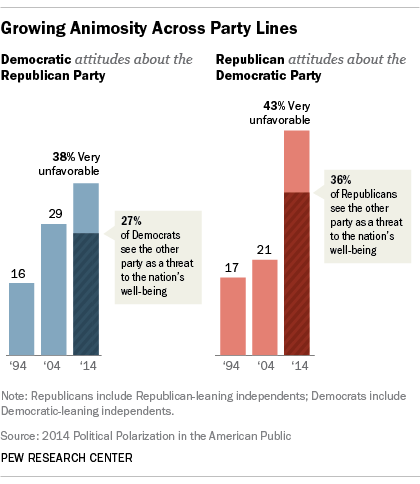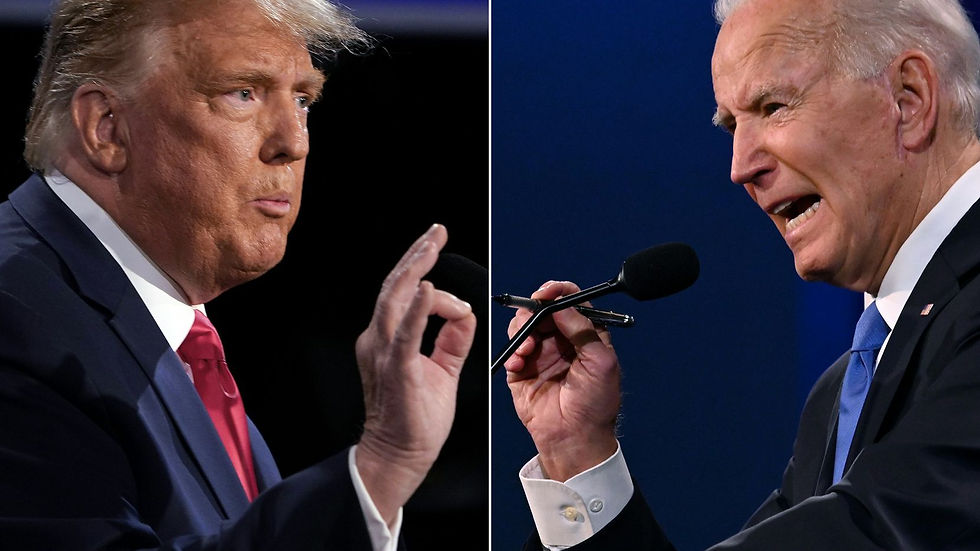Watching 'Boys State' Made Me Worry About the Future of Politics.
- charlottenoeljones
- Sep 4, 2021
- 5 min read

'Boys State' is a 2020 documentary directed by Jesse Moss and Amanda McBain about a group of teenage boys competing for positions in a pseudo-election at the annual Texas Boys State event. The movie focuses a few characters such as: Steven, a son of immigrants and a passionate democrat, Robert, a boy passionate about serving in the military and going to West Point, René, a smart boy who champions for Black rights, and Ben, a double amputee with strong values about hard work. The documentary explores how each of these boys' beliefs and personalities clash together while showing how a fun activity for teenagers passionate about government turns into a hostile and polarizing environment. This review will examine the parallels between this film and what political scientists are seeing now in politics.

One of the most important aspects of the film is political polarization. As the boys get deeper into the elections, one of the main problems becomes party loyalty. Even in the beginning, the nationalist party is very anti-federalist and the federalist party is very anti-nationalist. When the boys are trying to get votes for state party chairman, their main selling points are "pressuring the federalists into absolute submission" and "pummeling any federalist into the ground" or "I hope to fill every seat.....with federalists" and their main selling points come down to 'our party will win'. Just like in real-life politics, they view elections as a game to win. It's not about promoting your policies, at least not most of it, it is about beating the other side. Naturally, promoting partisanship will make people feel like they have to pick a side because they don't want to be left out. Furthermore, what is interesting about this is that we can see this very thing in politics today. In a study done by the (1)Pew Research Center, 27% of democrats see republicans as a threat to the nation and 36% of republicans see democrats as a threat to the nation. Something I found interesting was that early in the elections some groups were already trying to secede and propose impeachment, and no one really explained their values outside of "we want to focus on abortion" or "we want to focus on immigration". Party values took a seat behind party loyalty. However, something ironic is that Steven, the most bipartisan candidate, won governor. His idea was that "people should be inspired by hope, not fear" and "what you believe you're doing should be in the best interest of everybody, not just yourself". This is interesting because deep down I believe that everyone, not just the boys at Texas Boys State, desires some sort of stability and bipartisanship in politics, even the far-left and the far-right.

Another thing the film showed that was the role of personality and honesty in politics. Although Steven never really shared what his opinions and values were outside of wanting the nationalist party to be focused on public service and helping people, his approach to politics won him the governor position. There were many boys that were more qualified, better public speakers, or defined their platform better, but for some reason Steven won. However, research actually says it was expected for him to win. In a study done by the (2) Pew Research Center, people interviewed before the primaries said that experience was the defining factor they looked for in a politician, but as the elections progressed the same people said a different approach and unique ideas were the most important thing a politician should have. This explains why Steven was unpopular in the beginning but very well liked in the end or why René won State Chairman in the beginning but people were calling for his impeachment in the end. Moreover, between Steven and Robert, it is a little surprising, but not unexpected, that Robert didn't win. While Robert lied about his stance on abortion to mimic the popular conservative opinion, Steven was never upfront about what he stood for. However, I believe that Steven appeared more honest than Robert. Instead of lying, he made it seem like he wanted to create a party based on everyone's opinions and values. I think he won because he kept his platform as open as possible. His personality played a huge role in his politics.

An interesting way the directors showed the groupthink in 'Boys State' was through cinematography and foreshadowing. In the beginning, the first thing on screen is a quote by George Washington that reads "Political parties are likely to become potent engines, by which cunning, ambitious, and unprincipled men will be enabled to subvert the power of the people and to usurp for themselves the reins of government". Another example of foreshadowing is when they are comparing '1984' and 'Brave New World' and 'Brave New World' believes that 'No 'Big Brother' is required to deprive people of their autonomy and maturity. While the original message is not related to politics, the teacher relates the books to democracy and believes the best way to maintain a democracy is to fight for it. This set up is ironic because in practicing elections, which are a key factor of any democracy, the elections become extreme and immature. Another stylistic choice is by highlighting and showing a lot of the frat behavior at Texas Boys State and how it is normalized and encouraged at the event. Moreover, I think the directors had a message to get across when they including the boys competing in pushup contests or shots of the boys aggressively creating hype for an event or a speech. I believe the directors put these scenes in to show how their frat behavior created intense group loyalty and groupthink. Furthermore, this type of environment wouldn't have been created if the event was more diverse.

In conclusion, 'Boys State' is an interesting and compelling film that shows political polarization and what it takes to win an election up close. The film explores honesty, loyalty, and the importance of a defined sense of self in the context of politics. 'Boys State' is a fantastic film because the elections in the film mirror elections in real life and many aspects of the film can be supported by real life research. The movie is a recommended re-watch for political scientists and non political scientists alike because it predicts what the next generation of politicians will look like and it teaches the dangers of extreme party loyalty. Finally, one lesson we should all take away from 'Boys State' is that we need to redirect politics. If recent trends in politics and the events at Texas Boys State have taught us anything, it's that we need a major change in politics. We need more diversity in politics, we need to move away from the party binary in politics, and we need to define ourselves by what party we are less if we want to save American politics.
Citations
(1) Doherty, Carroll. “7 Things to Know about Polarization in America.” Pew Research Center, 12 June 2014, https://www.pewresearch.org/fact-tank/2014/06/12/7-things-to-know-about-polarization-in-america/
(2) Fingerhut, Hannah. “What Voters Want in a President Today, and How Their Views Have Changed.” Pew Research Center, 12 Feb. 2016, https://www.pewresearch.org/fact-tank/2016/02/12/what-voters-want-in-a-president-today-and-how-their-views-have-changed/



Comments